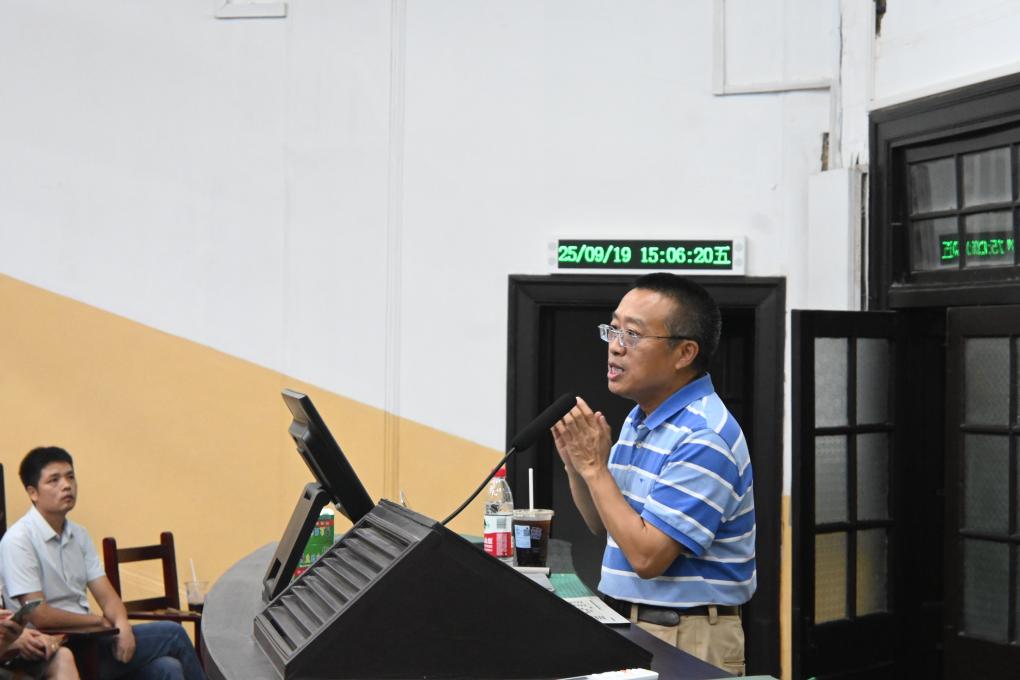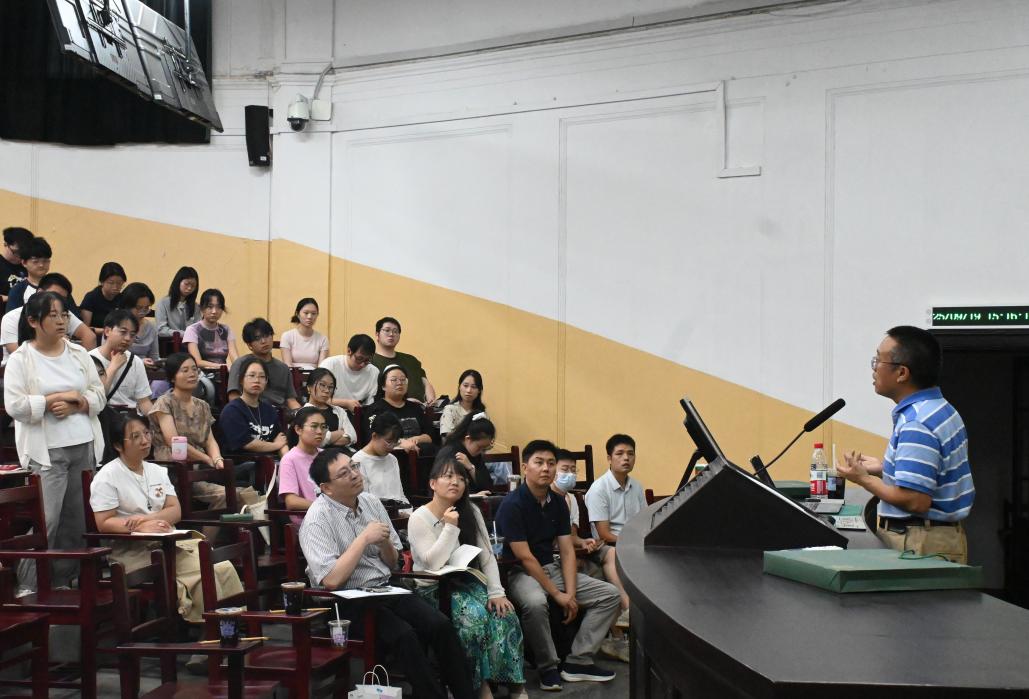On the afternoon of September 19, CAS Academician Hong Zhang from the Institute of Biophysics, Chinese Academy of Sciences, visited Southeast University. At the Zhizhitang Auditorium on the Sipailou Campus, he delivered an academic lecture titled "The Role of Dynamic Ca²⁺ Signals in Specifying Autophagosome Initiation" to faculty and students. The lecture was chaired by Professor Junhai Han, Dean of the School of Life Science and Technology, and attracted an audience of over one hundred.

During his presentation, Academician Zhang first compared the sites and mechanisms of autophagy initiation in unicellular yeast and the multicellular model organism C. elegans. He then reviewed his team’s pioneering work in genetic screening for autophagy-related genes using C. elegans. Further, he highlighted their recent discovery: autophagy induction triggers rapid calcium transients on the outer surface of the endoplasmic reticulum (ER). These calcium signals activate CaMKIIβ, promoting liquid-liquid phase separation (LLPS) of the core autophagosome initiation factor FIP200. The resulting ER-anchored biomolecular condensates ultimately assemble into functional autophagosome formation sites.
In the Q&A session, Academician Zhang engaged in stimulating discussions with the audience on topics such as potential crosstalk between autophagy and the nervous system, as well as the spatiotemporal regulation of calcium transients. He encouraged young researchers to carefully observe and reflect on subtle or anomalous phenomena in research, and emphasized the importance of interdisciplinary collaboration as a catalyst for innovation.

The lecture was co-organized by the School of Life Science and Technology at Southeast University and the Key Laboratory of Developmental Genes and Human Diseases (Ministry of Education), and hosted by the Science Association of the School of Life Science and Technology, Southeast University.
(Text: Fulong Wang; Photos: Xingjuan Shi; Review: Lei Chen)
